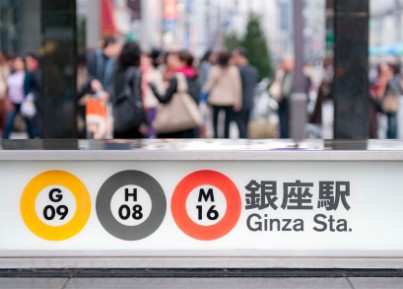
Shopping is a Japanese obsession, and it's hard not to be drawn into the enthusiasm while visiting. There's no limit to what you can buy here, from traditional handicrafts to the latest-breaking models of digital cameras or designer fashions.
The department store is a mainstay of Tokyo's shopping culture, and a few in Ginza district have been open for centuries. These usually anchor massive shopping malls where shoppers can find everything under one roof. Positioned as they are at the center of the world's largest metropolitan area, it's no wonder some of these complexes span 10 floors.
Aside for the usual collection of modern merchandise, these outlets deal in traditional goods like cotton kimonos, iron teapots, ceramics, samurai swords and lacquerware. Manga is unbelievably popular, with shops in Shibuya and Akihabara.
This department store opened in the 1600s and specializes in clothing. Most of the shoppers here are older Japanese. There are a few onsite attractions including a beer garden (open in summer only) and a play area for children.
Another of Japan's centuries-old shops, this department store has set many firsts throughout the years. The building itself is striking, and the boutiques inside deal primarily in international brands. Mitsukoshi staked its reputation on kimonos in the 1600s, and it's still known for these today.
Seibu is a massive department store with nearly 50 entrances and a small army of employees. Its stores (which collectively offer everything imaginable) are spread across 12 floors, and the daily number of shoppers regularly exceeds 160,000.
It may not offer the quintessential Japanese experience, but this marketplace is the best place in Tokyo to buy souvenirs and handicrafts. Merchandise is spread across four floors and prices are reasonable.
This shopping complex is within walking distance of Shinjuku Station. Takashimaya department store is the anchor, but this complex has so much more. As Shinjuku's major shopping draw, Times Square is quieter on weekdays. There's also a Kinokuniya bookstore here with an impressive selection of English-language books.
This is arguably the best manga shop in Tokyo (or the world, for that matter), but some would give that honor to Akihabara, also in the area. Mandarake also has a branch in Shibuya. Both boast definitive collections ofanime, manga, video games and costumes.
A five percent sales tax is added to most goods, but tourists can get a refund so long as they spend more than 10,000 yen. Shops open in Tokyo at all hours, and this doesn't merely apply to convenience stores. Shoppers do well to avoid weekends (and especially Sundays) when whole families flood the department stores.